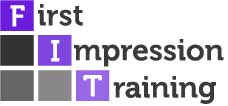I’m sure you’ve heard the old adage that says “What if I train my people and they all leave?” to which the tried and tested response is always “What if you don’t and they stay!”.
It serves as a reminder that, whilst developing the right attitudes and behaviours is critical to building a successful culture within a business, any return on this training investment can be short-lived should the recipient leave the business soon afterward.
There is, however, a very practical solution to this scenario which can help to protect business owners and it comes in the form of Training Agreements. Whilst these aren’t a new idea I’m grateful to Jacqui Mann (J.Mann Associates) who has kindly given her permission for us to republish her practical advice as she shines a light on this particular topic.
Jacqui’s key points
If you are going to use a training agreement then I recommend the following:
- To be able to recover training costs from an employee who leaves during or shortly after training you need to have a written training agreement in place before the training starts.
- The training agreement should be a separate document from the employment contract. You can’t just rely on a clause in their employment contract.
- This agreement should be in writing and given to the employee alongside a clear explanation of what it means. You should make sure you have the employee’s consent to this agreement by ensuring they sign it.
- Explain why the repayment is necessary.
- Set up a sliding scale repayment. This means that the employee will repay all, or a proportion of, the money that you have invested should they choose to leave after completing the training. The most effective way to do this is to decide on a staggered system of claw-back whereby the amount to be repaid by the employee decreases with time until a certain period has lapsed after which no repayment is due.
- You can calculate your own schedule of repayment with regards to how the money is clawed back. Most training agreements usually stipulate a repayment of 100% of the training costs if the employee resigns within 3 months of completing training; 75% repayment after 3 – 6 months; 50% after 6 – 9 months and 25% after 9 – 12 months. After 12 months, no repayment would be due.
- Ensure the figure to be repaid is an actual reflection of fees paid and not just an arbitrary sum. If it’s not a true reflection of the cost then it may be seen as a penalty and therefore be unenforceable.
- Ensure there is a clause in the training agreement to allow you to make deductions from wages from the employee’s final salary in respect of any outstanding training fees if he or she leaves.
Our thanks to Jacqui and her team for this practical advice – there’s lots more practical HR support within their discussion community designed to help business owners and entrepreneur discover how to build a team of brilliant staff. Find out more at https://www.jmassociates.org/

















